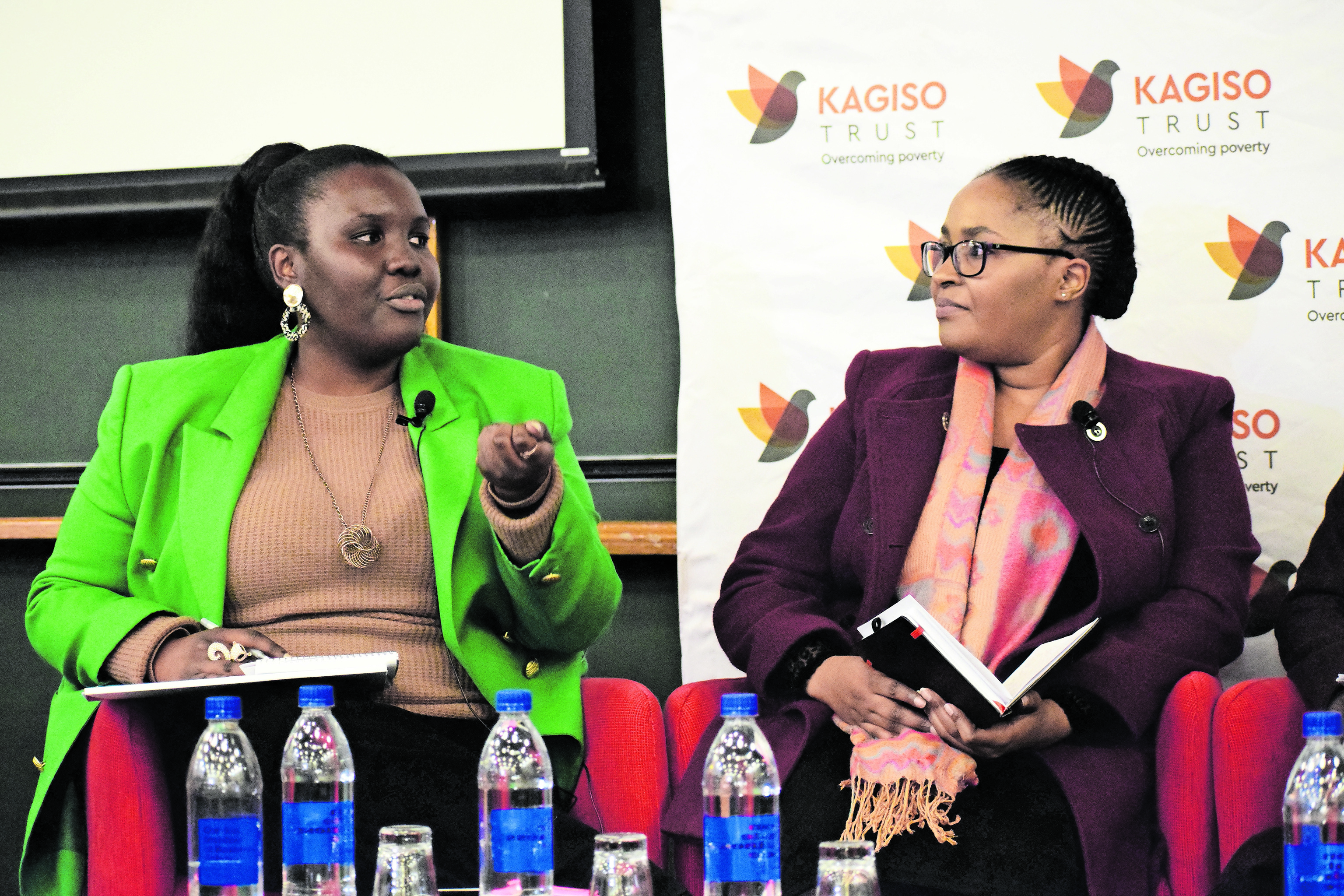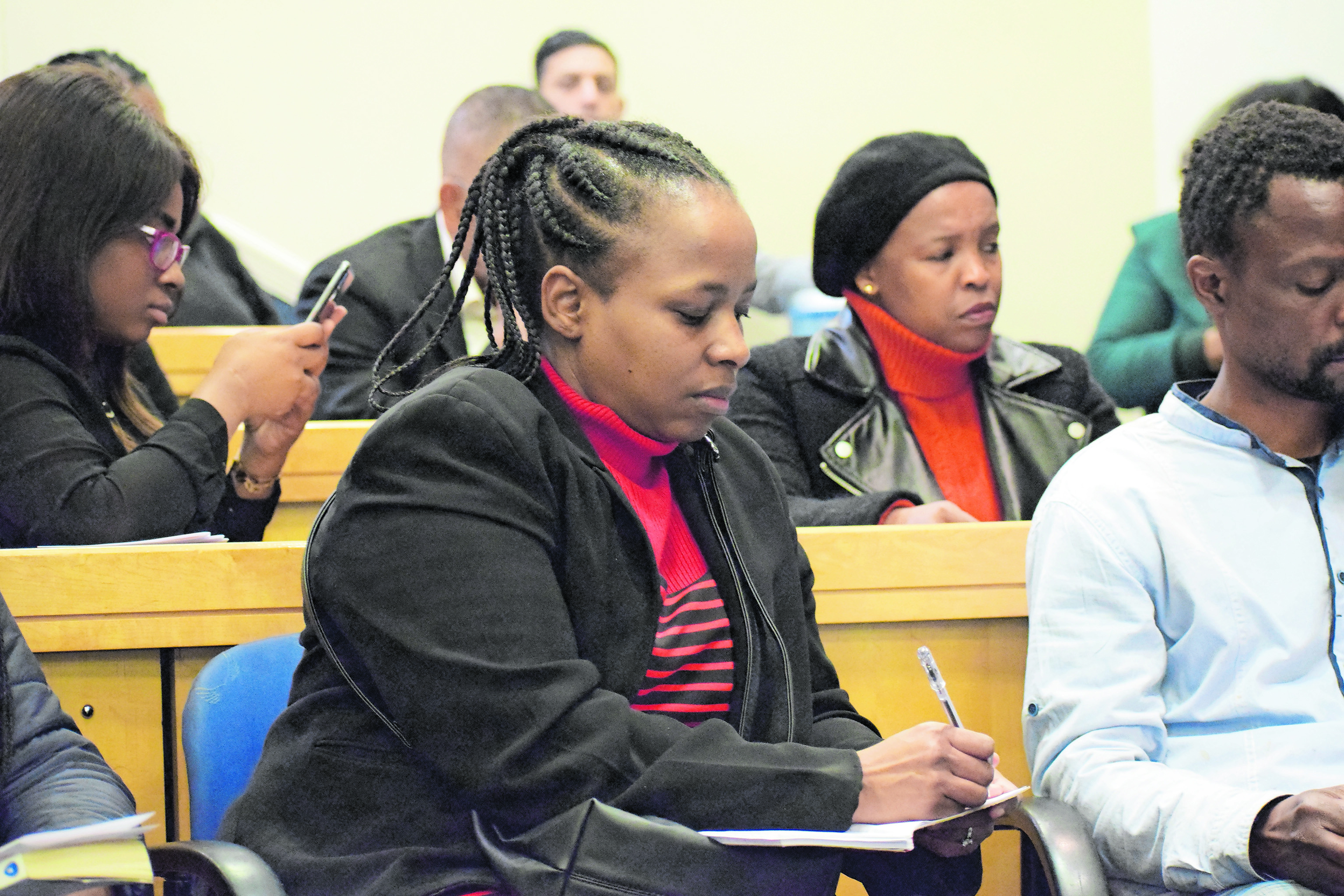Zamantungwa Khumalo, Ayanda Magida, Brynne Guthrie, Buyani Zwane and Professor Daniel Mashoa discuss issues at the critical thinking forum on 4IR. (Photos: Tumi Mmola - Creative Fiends)
Kagiso Trust, in partnership with the Mail & Guardian held a Critical Thinking Forum on July 2 2019 at the Gordon Institute of Business Science in Johannesburg. As the wave of change approaches, unpacking what South Africans know and understand about the fourth industrial revolution (4IR) was the overarching theme for the stakeholders in attendance.
The current financial crisis South Africa finds itself in means there must be a growing emphasis on job creation and the adaptation to the new phenomenon that is the 4IR. Digital technologies and what they mean for the nation at large is a hot topic. During all three previous revolutions, Africa was left behind. Encouraging innovation will be key as a better future for all is re-imagined.

The night kicked off with an introduction and keynote address by Reverend Zwoitwaho Nevhutalu. He outlined the importance of “revolutionising the way we live and work” in this day and age as we enter a new era filled with both challenges and unique possibilities, despite the “disruptions” that may emerge as a result. “The fourth industrial revolution will impact us all and no one should be left behind through lack of resources,” he emphasised.
Ideas about what it means to be human and well as how we interact with various industries and sectors will all have to be re-imagined. There are possibilities to create and implement effective and efficient change with the introduction of new technologies, new jobs and ways of thinking, but there is also an equal and opposite threat of changes in current business models and operations, and jobs that may be lost in the process. Many other pertinent issues were also outlined, but public and private sector collaboration will be a key driver to ensure a smoother transition for all.
The Critical Thinking Forum hosted by Kagiso Trust, facilitated by Zamantungwa Khumalo, head of content for supplements and commercial projects at the M&G, along with panellists Ayanda Magida, research manager at Wits Business School; Brynne Guthrie, Southern Africa Google policy fellow; Buyani Zwane, chief executive of Breakthrough Development and chairperson of iSimangaliso Wetland Park Authority; and Professor Daniel Mashoa, executive dean of the Faculty of Engineering and Built Environment at the University of Johannesburg.

Dr Andile Mthotwya unpacked a recent report on the 4IR, outlining how to enhance an economically active citizen for the 4IR. What emerged is the power of collaboration and intersecting of industries to enhance replicability, scalability and sustainability of everybody, as it has a direct impact on us all. Critical factors to advance an economically active citizen during this period include having pragmatic implementers. A value chain co-ordinator will help to leverage off expertise as well as learn from others who are slightly more advanced and leading the way the world over.
The standard notion of “nine to five” work is dead, according to Zwane. Access to quality education is vital for all as we make this transition implementable and effective. The importance of quality education cannot be emphasised enough. A connection between what industry is looking for and what comes through the various institutions does not always measure up, according to Zwane. Adequately upskilling people will be the way to ride this wave of change.
Education at various levels and age groups will play an important role in changing the positioning of South Africa as a global player. Skills garnered will be in line with the jobs of the future and collaborations across industries will be made possible.
Technology and law go hand in hand. New advancements and interpretations of laws require a new way of accessing and handling personal information and privacy laws. These have to be relevant and assist with narratives defined by us rather than though outsourcing, where details may be lost in translation. “Data is the new currency for the fourth industrial revolution. This data must reflect our social histories and backgrounds,” said Guthrie. “To truly take advantage of the fourth industrial revolution, there is a great need for innovation and different ways of approaching the way we live and work.”
As South Africa’s economy shifts towards a more knowledge-based economy, skill sets are bound to shift as well. Although machines are pragmatic and efficient, the human factor cannot be left out — humans will ultimately always facilitate and guide this process. As a developing economy, adapting to the 4IR is inevitable for South Africa. Will we be at the forefront of driving this change, or at its mercy? The time for talking is done; walking the talk is the only solution as we strive for a better life for all.